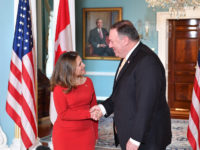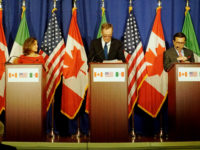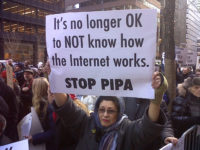In the final weeks of the USMCA negotiations, Canada signalled that a full cultural exception was a non-negotiable issue with Prime Minister Justin Trudeau wading in to emphasize the importance of the issue. While the resulting deal has garnered applause from many culture lobby groups (music, magazines, publishers, ACTRA), the reality is that the government did not obtain a full cultural exception. In fact, after criticizing the Conservatives for accepting exceptions to the cultural exception in the TPP (and making it a key issue in the CPTPP once the U.S. exited the agreement), the Liberal government similarly included two exceptions and agreed to an extension in the term of copyright that will have a far more damaging impact on access to Canadian culture than any proposed USMCA provision.
Search Results for "The Trouble with the TPP" : 93
From Copyright Term to Super Bowl Commercials: Breaking Down the Digital NAFTA Deal
Canada and the U.S. reached agreement late yesterday on a new NAFTA (now renamed the U.S.-Mexico-Canada Agreement or USMCA). While much of the focus is on the dairy industry, dispute resolution, and the auto sector, the agreement will have significant implications for intellectual property, digital policy, and broadcasting. It will take some time to examine all the provisions, but the short-hand version is that Canada has agreed to extend the term of copyright, saved the notice-and-notice system for copyright infringement claims, extended the term of protection for biologics at significant long-term cost to the health care, agreed that Internet companies are not liable for third party content, extended border measures on counterfeiting, and promised to drop the CRTC policy that permitted U.S. commercials to be aired during the Super Bowl broadcast.
Compromising on Culture?: Why a Blanket Culture Exception in NAFTA is Unnecessary
As the NAFTA negotiations continue to inch along, one of the remaining contentious issues is the inclusion of a full cultural exception that would largely exclude the Canadian culture industries from the ambit of the agreement. The government has not been shy about speaking out against compromising on culture, noting the perceived risks of provisions that might permit foreign ownership of media organizations. Indeed, the culture issue has attracted considerable attention, with coverage pointing to media ownership rules and simultaneous substitution policies as hot button concerns. Yet as cultural groups cheer on the government’s insistence that cultural policy should be taken off the NAFTA table, the reality is that there remains plenty of room for compromise. This post focuses on three of the biggest issues: foreign ownership, simultaneous substitution, and the TPP culture exceptions.
Crunch Time in the NAFTA Negotiations: What’s at Play for Canada on Digital Policy
As the NAFTA negotiations hit a possible home stretch this week, the focal point has been primarily on issues such as dispute resolution, the dairy sector, and the auto industry. However, the digital policy issues will have huge implications for Canada and the outline of the agreement between the U.S. and Mexico suggests that Canada is facing considerable pressure to agree to changes to our copyright, patent, IP enforcement, and digital policy rules, contrary to our preferred negotiation approach.
The U.S. appears to be pushing for a TPP+ approach – the TPP provisions plus some additional changes it did not get as part of those negotiations. This is notable since Canadian authorities admitted that the TPP went far beyond any previous Canadian free trade agreement. The Canadian starting point is presumably the CPTPP, the revised TPP where Canada successfully argued for the suspension of some of the U.S.-backed provisions. This post outlines five of the biggest issues that are likely at play, though many others such as de minimis rules for shipments that affect online commerce will be closely watched and could ultimately require future reforms.
Canada’s SOPA Moment: Why the CRTC Should Reject the Bell Coalition’s Dangerous Internet Blocking Plan
Six years ago, then Public Safety Minister Vic Toews was challenged over his plans to introduce online surveillance legislation that experts feared would have significant harmful effects on privacy and the Internet. Mr. Toews infamously responded that critics “could either stand with us or with the child pornographers.” The bill and Mr. Toews’ comments sparked an immediate backlash, prompting the government to shelve the legislation less than two weeks after it was first introduced.
This week, telecom giant Bell led a coalition of companies and associations called FairPlay Canada in seeking support for a wide-ranging website blocking plan that could have similarly harmful effects on the Internet, representing a set-back for privacy, freedom of expression, and net neutrality. My Globe and Mail op-ed notes the coalition’s position echoes Mr. Toews, amounting to a challenge to the government and the Canadian Radio-television and Telecommunications Commission (the regulator that will consider the plan) that they can either stand with them or with the pirates.











